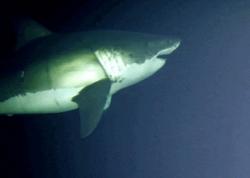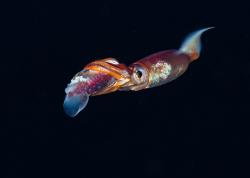Shark fins Banned in California
Shark Fins Banned in California
Possesion, sale and distribution banned
Existing stocks may be sold until 2013
By Scott Gietler
Gov. Jerry Brown signed a bill today, Friday, October 7th, that outlaws the sale and possession of shark fins in California.
Assemblyman Paul Fong (D-Cupertino) orignally introduced AB 376 in an attempt to stop what he and several environmental groups argue is a brutal practice that is wiping out large numbers of sharks. Fishermen usually remove the fins from sharks and throw the rest of the carcass back in the water. Oregon, Washington, Guam, and Hawaii have similar laws.
“The practice of cutting the fins off of living sharks and dumping them back in the ocean is not only cruel, but it harms the health of our oceans,” Brown said in a statement.
Millions of sharks are killed each year, and that harvest is threatening the existence of some species.
“Researchers estimate that some shark populations have declined by more than 90%, portending grave threats to our environment and commercial fishing,’’ Brown said. "In the interest of future generations, I have signed this bill.”
Sharks are mostly killed to produce shark fin soup. After the fins are cut off, sharks are thrown back into the water and quickly die.
Environmental groups were quite happy. “Today is a landmark day for shark conservation around the globe” said Susan Murray, Oceana’s Senior Pacific Director. “The leadership shown by legislatures and governors of California, Oregon, Washington, and Hawaii sends a strong message that the entire US West Coast will no longer play a role in the global practice of shark finning that is pushing many shark species to the brink of extinction.”

Photo of a happy reef shark, with its fins still on. Photo copyright Edwar Herreno.
Companion Bill 853 also signed
Bill 853 was also signed that allows existing stocks of on-hand shark fins to be sold until July 1, 2013. The ban on importing goes into effect on Jan 1st, 2012. It also exempts sharks legally caught by California fisherman. This bill was added as a compromise to help AB 376 get passed. Whether Bill 853 will turn into a loophole used by businesses serving shark-fin soup remains to be seen.
Assemblyman Paul Fong is a member of the Chinese-American community, and there is no doubt that this helped build support for the bill. Some chinese restaurant owners had felt unfairly targeted by the bill.
Thanks to everyone who helped pass this bill
Special thanks goes to sharksavers.org for their efforts in getting this bill passed and signed, and of course to Assemblyman Paul Fong for introducing the bill.
In Southern California, groups like OCDiving and Power Scuba made an extra effort to get the word out. Thanks so much!
Full text of bill AB376 and bill 853
Here is bill AB376
AB 376, Fong. Shark fins.
Existing law makes it unlawful to possess any bird, mammal, fish,
reptile, or amphibian, or parts thereof, taken in violation of any of
the provisions of the Fish and Game Code, or of any regulation made
under it.
This bill, except as specified, would make it unlawful for any
person to possess, sell, offer for sale, trade, or distribute a shark
fin, as defined.
The bill, by creating a new crime, would impose a state-mandated
local program.
The California Constitution requires the state to reimburse local
agencies and school districts for certain costs mandated by the
state. Statutory provisions establish procedures for making that
reimbursement.
This bill would provide that no reimbursement is required by this
act for a specified reason.
THE PEOPLE OF THE STATE OF CALIFORNIA DO ENACT AS FOLLOWS:
SECTION 1. The Legislature finds and declares all of the
following:
(a) Sharks, or elasmobranchs, are critical to the health of the
ocean ecosystem.
(b) Sharks are particularly susceptible to decline due to
overfishing because they are slow to reach reproductive maturity and
birth small litters, and cannot rebuild their populations quickly
once they are overfished.
(c) Sharks occupy the top of the marine food chain. Their decline
is an urgent problem that upsets the balance of species in ocean
ecosystems and negatively affects other fisheries. It constitutes a
serious threat to the ocean ecosystem and biodiversity.
(d) The practice of shark finning, where a shark is caught, its
fins cut off, and the carcass dumped back into the water, causes tens
of millions of sharks to die each year. Sharks starve to death, may
be slowly eaten by other fish, or drown because most sharks need to
keep moving to force water through their gills for oxygen.
(e) Data from federal and international agencies show a decline in
shark populations worldwide.
(f) California is a market for shark fin and this demand helps
drive the practice of shark finning. The market also drives shark
declines. By impacting the demand for shark fins, California can help
ensure that sharks do not become extinct as a result of shark
finning.
(g) Shark fin often contains high amounts of mercury, which has
been proven dangerous to consumers' health.
SEC. 2. Section 2021 is added to the Fish and Game Code, to read:
2021. (a) As used in this section "shark fin" means the raw,
dried, or otherwise processed detached fin, or the raw, dried, or
otherwise processed detached tail, of an elasmobranch.
(b) Except as otherwise provided in subdivisions (c), (d), and
(e), it shall be unlawful for any person to possess, sell, offer for
sale, trade, or distribute a shark fin.
(c) Any person who holds a license or permit pursuant to Section
1002 may possess a shark fin or fins consistent with that license or
permit.
(d) Any person who holds a license or permit issued by the
department to take or land sharks for recreational or commercial
purposes may possess a shark fin or fins consistent with that license
or permit.
(e) Before January 1, 2013, any restaurant may possess, sell,
offer for sale, trade, or distribute a shark fin possessed by that
restaurant, as of January 1, 2012, that is prepared for consumption.
SEC. 3. No reimbursement is required by this act pursuant to
Section 6 of Article XIII B of the California Constitution because
the only costs that may be incurred by a local agency or school
district will be incurred because this act creates a new crime or
infraction, eliminates a crime or infraction, or changes the penalty
for a crime or infraction, within the meaning of Section 17556 of the
Government Code, or changes the definition of a crime within the
meaning of Section 6 of Article XIII B of the California
Constitution.
Here is Bill 853
AB 853, Fong. Sharks.
Existing law makes it unlawful to possess any bird, mammal, fish, reptile, or amphibian, or parts thereof, taken in violation of any of the provisions of the Fish and Game Code, or of any regulation made under it.
This bill would create exemptions from a shark fin prohibition proposed by AB 376. The bill would require the Ocean Protection Council to submit an annual report to the Legislature that lists any shark species that have been independently certified to meet internationally accepted standards for sustainable seafood, as provided. The provisions of the bill would become operative only if AB 376 is enacted and takes effect on or before January 1, 2012.
THE PEOPLE OF THE STATE OF CALIFORNIA DO ENACT AS FOLLOWS:
SECTION 1. Section 2021.5 is added to the Fish and Game Code, to read:
2021.5. (a) Notwithstanding Section 2021, all of the following provisions apply:
(1) Any person who holds a license or permit issued by the department to take or land sharks for recreational or commercial purposes may possess, including for purposes of consumption or taxidermy, or may donate to a person licensed or permitted pursuant to Section 1002, a shark fin or fins consistent with that license or permit.
(2) Before July 1, 2013, any person may possess, sell, offer for sale, trade, or distribute a shark fin possessed by that person, as of January 1, 2012.
(3) Nothing in Section 2021 prohibits the sale or possession of a shark carcass, skin, or fin for taxidermy purposes pursuant to Section 3087.
(b) (1) The Ocean Protection Council shall submit an annual report to the Legislature that lists any shark species that have been independently certified to meet internationally accepted standards for sustainable seafood, as defined in Section 35550 of the Public Resources Code, and adopted by the Ocean Protection Council pursuant to Section 35617 of the Public Resources Code, including chain of custody standards.
(2) A report to be submitted pursuant to paragraph (1) shall be submitted in compliance with Section 9795 of the Government Code.
SEC. 2. This act shall become operative only if Assembly Bill 376 of the 2011-12 Regular Session is enacted and takes effect on or before January 1, 2012.
Further reading
RECOMMENDED ARTICLES
SUPPORT THE UNDERWATER PHOTOGRAPHY GUIDE:
The Best Service & Prices on u/w Photo Gear
 Visit Bluewater Photo & Video for all your underwater photography and video gear. Click, or call the team at (310) 633-5052 for expert advice!
Visit Bluewater Photo & Video for all your underwater photography and video gear. Click, or call the team at (310) 633-5052 for expert advice!
The Best Pricing, Service & Expert Advice to Book your Dive Trips
 Bluewater Travel is your full-service scuba travel agency. Let our expert advisers plan and book your next dive vacation. Run by divers, for divers.
Bluewater Travel is your full-service scuba travel agency. Let our expert advisers plan and book your next dive vacation. Run by divers, for divers.































